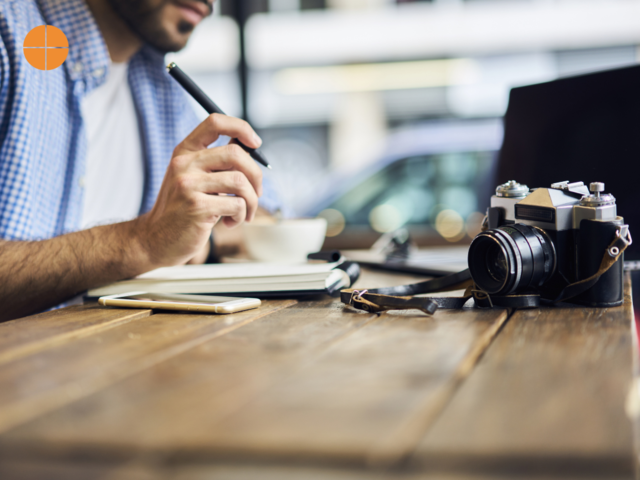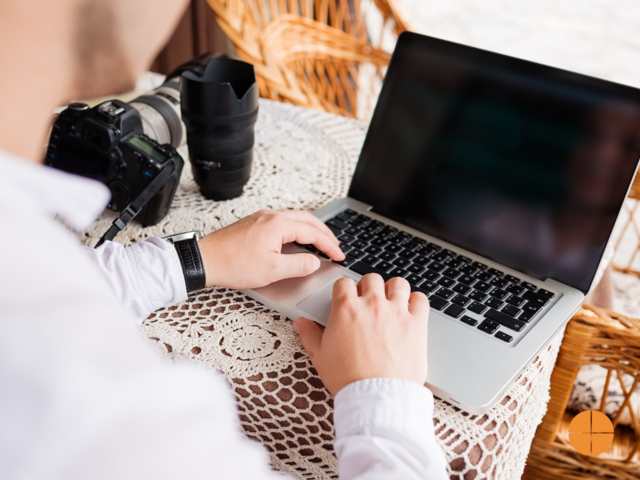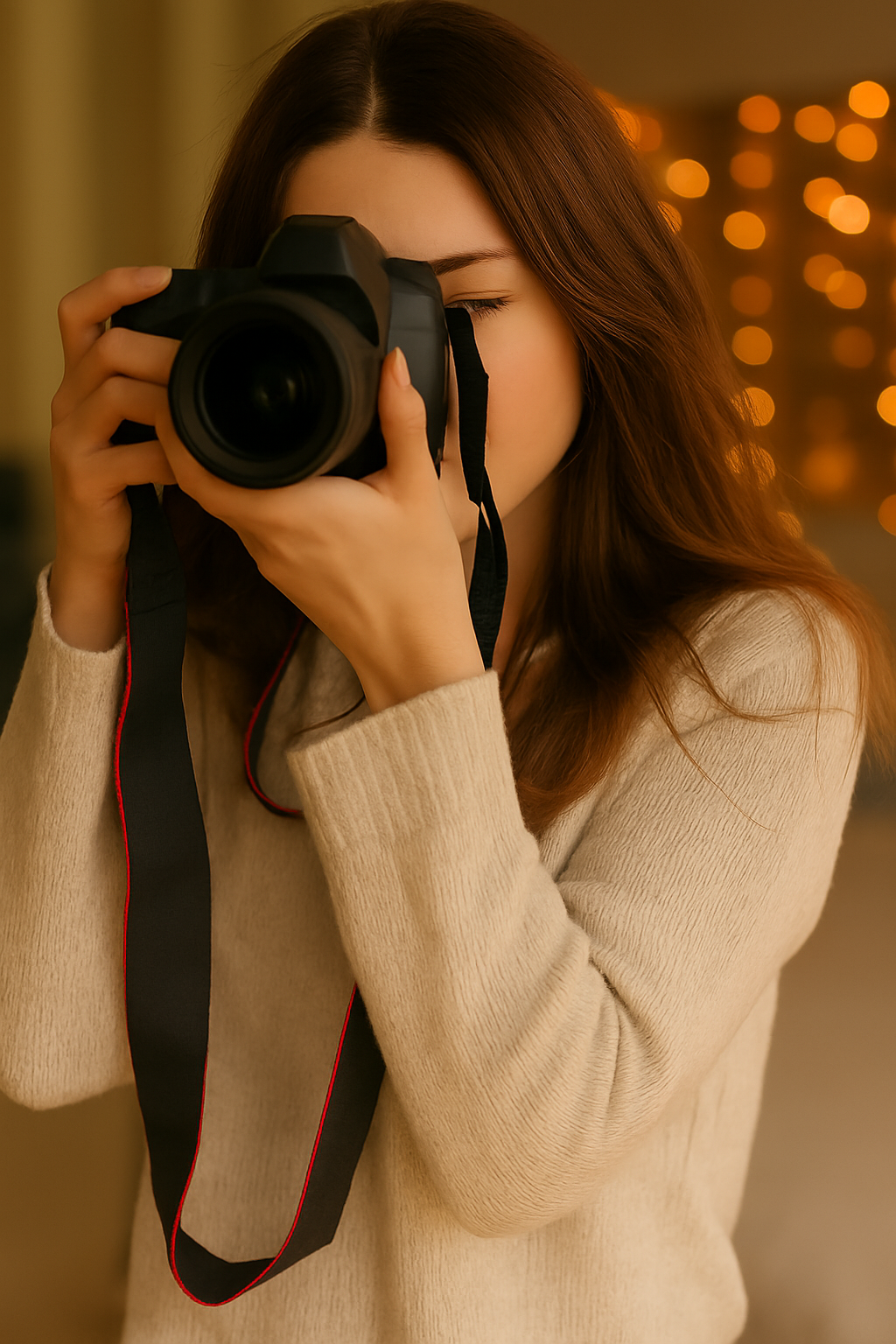One of the main benefits of researching as a photographer is that it allows you to gain a deeper understanding of your subject. By doing your homework, you can learn about the history, context, and significance of your subject, which can help you create more meaningful and insightful images. Research can also help you identify unique angles and perspectives.
Rather than simply shooting what's in front of you, you will uncover hidden stories and nuances that can enhance your images and make them stand out. In addition to its creative benefits, researching can also be practical. By understanding your subject matter, you can be better prepared for your photoshoot and avoid any potential pitfalls or challenges. Overall, researching as a photographer is an important aspect of the craft that can help you create more informed, impactful, and unique images. Don't skip this step, take the time to do your research and it will pay off in the quality of your work.

Identifying unique angles and perspectives
Identifying unique angles and perspectives is an important part of the photography process. By looking at your subject matter in different ways, you can create images that are more interesting, creative, and dynamic.
It may surprise you to learn that research is a way to identify unique angles and perspectives. By learning about the history, context, and significance of your subject, you can uncover hidden stories and nuances that can inspire new and interesting ways of looking at it.
Another way to find unique angles and perspectives is to simply get out and shoot. Experiment with different viewpoints, such as shooting from above, below, or at unusual distances. Try using different lenses or focal lengths to change the way your subject is depicted. Don't be afraid to get creative with your composition. Consider using leading lines, patterns, or negative space to create more striking images.
By taking the time to experiment with different angles and perspectives, you can create images that are more dynamic, creative, and memorable.
Being better prepared for a photoshoot
Being well-prepared for a photoshoot can be the difference between the success or failure of your images. By taking the time to do your homework, you can ensure that you have everything you need thus minimizing any potential challenges or setbacks.
One way to be better prepared for a photoshoot is to research your subject matter. By gaining a deeper understanding of your subject, you can identify any potential problems or issues that you might encounter, and come up with solutions ahead of time.
Another way to prepare for a photoshoot is to make a list of all the equipment and supplies you'll need. This can include your camera, lenses, tripod, lighting equipment, and any other accessories. Make sure you have everything you need, your batteries are charged and all your equipment is in good working order.
Consider scouting out your location ahead of time, if possible. This can help you get a sense of the light and ambiance of the space, and identify any potential challenges or opportunities.
By taking the time to properly prepare for your photoshoot, you can increase your chances of success and create better images.

The photography research process
Identify your research goals
As a photographer, it's important to identify your research goals before you begin. This will help you focus your efforts and ensure that you get the most out of your research.
Some possible research goals for a photographer might include:
- Gaining a deeper understanding of your subject: By researching your subject, you can learn about its history, context, and significance, which can help you create more informed and insightful images.
- Identifying unique angles and perspectives: Research can help you uncover hidden stories and nuances about your subject, which can inspire new and interesting ways of looking at it.
- Being better prepared for a photoshoot: Researching your subject can help you identify any potential problems or challenges that you might encounter during a photoshoot, and come up with solutions ahead of time.
- Finding inspiration: Researching other photographers or artists can help you discover new techniques, styles, and approaches that can inspire your own work.
By identifying your research goals, you can focus your efforts and get the most out of your research as a photographer.
After identifying your research goals, organize your findings
Once you've identified your research goals, it's important to organize your findings in a way that's easy to access and use. This can help you get the most out of your research and make it easier to incorporate into your photoshoots.
Here are a few ways to organize your research findings:
- Make a list: Write down the key points and takeaways from your research, and organize them in a list format. This can be a quick and easy way to review your research and refer back to specific points as needed.
- Use a mind map: A mind map is a visual representation of your research that shows the relationships between different ideas and concepts. This can be a helpful way to see the big picture and identify connections between different pieces of information.
- Create a folder system: If you've collected a lot of research materials, such as articles, images, or notes, consider creating a folder system to keep everything organized. You can create separate folders for different subjects or themes, and label them clearly for easy reference.
- Use digital tools: There are many digital tools available that can help you organize your research, such as Evernote, OneNote, or Trello. These tools allow you to create notes, lists, and other forms of content and organize them into folders or categories.
By organizing your research findings in a clear and accessible way, you can make it easier to access and use your research as a photographer.

Incorporate your research into your photoshoot
Once you've organized your findings, it's important to incorporate your findings into your photoshoot. This can help you create more informed, nuanced, and impactful images.
One way to incorporate your research into your photoshoot is to use it as a reference while you're shooting. If you've learned about the history or significance of your subject, try to incorporate that into your images. For example, if you're shooting a historical monument, try to capture the details that make it unique and significant.
Another way to incorporate your research is to use it to inform your compositions. If you've learned about unique angles or perspectives on your subject, try to incorporate them into your shots. For example, if you're shooting a landscape, try finding a unique vantage point that captures the beauty and character of the location.
Consider using your research as inspiration for your images. If you've looked at the work of other photographers or artists, try to incorporate elements of their style or approach into your own work.
By using your research to inform and inspire your photoshoot, you can create more informed, nuanced, and impactful images.
As a photographer, research is an essential part of the process and has many benefits. By taking the time to do your homework, you can gain a deeper understanding of your subject, identify unique angles and perspectives, and be better prepared for your photoshoots.
Researching can also be a great source of inspiration, allowing you to discover new techniques, styles and approaches that can inform and inspire your work.
Overall, researching is an important aspect of the craft that can help you create more informed, nuanced, and impactful images. Don't skip this step! Make research an integral part of your process as a photographer and it will pay off in the quality of your work.
Ready to become a better photographer? Enrol in our course and learn the techniques and tips that will help you take amazing photos and become a professional photographer.

